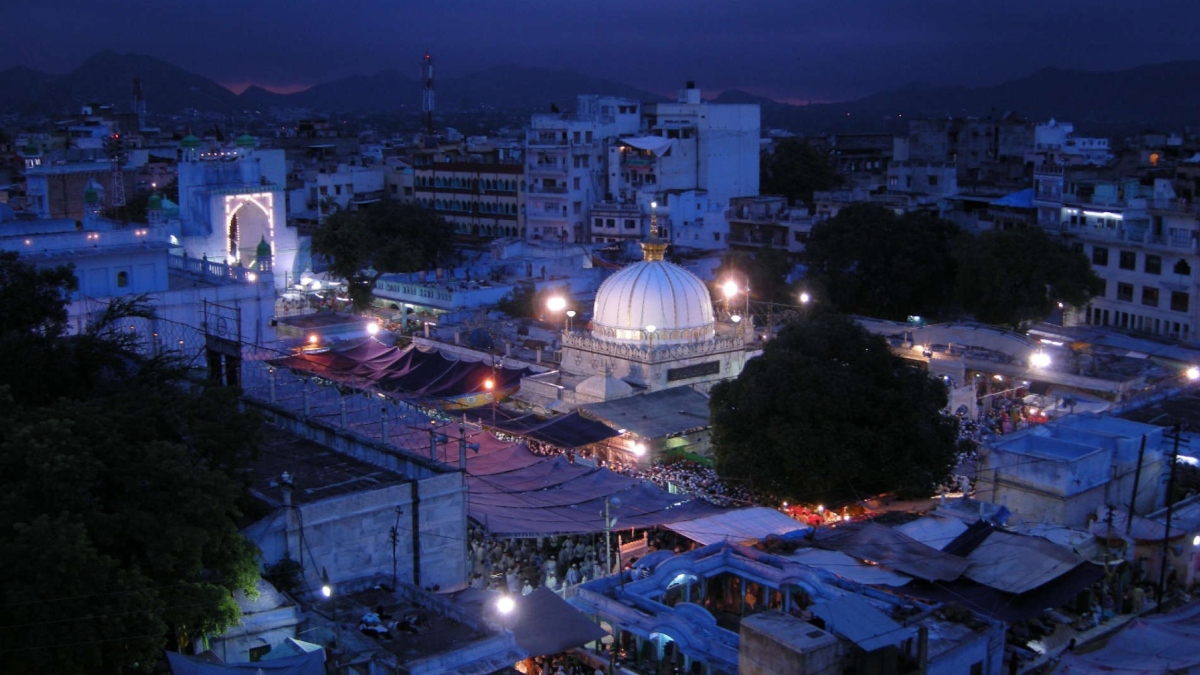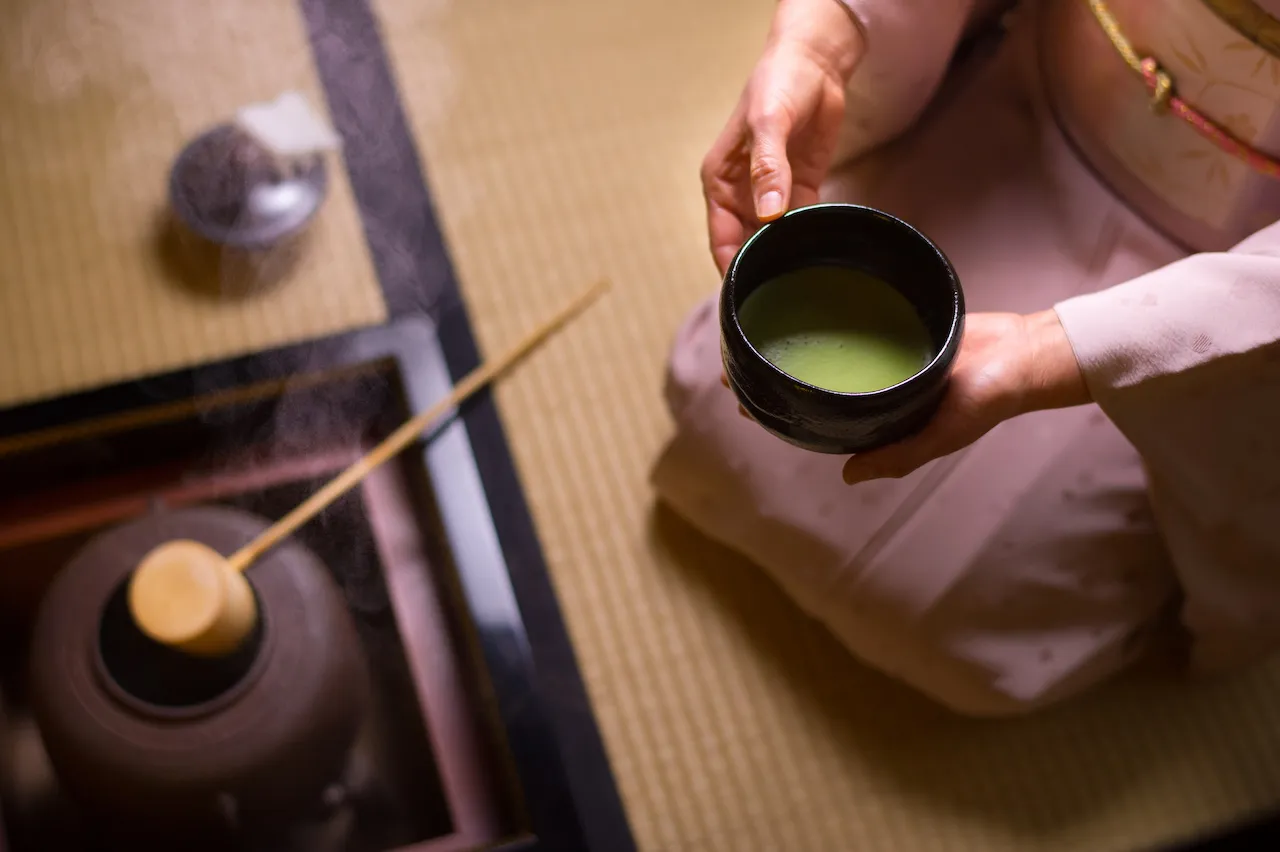Love towards All, Malice towards None
Hz. Khawaja Gharib Nawaz(ra), the Patron Sufi of Indian Sub-Continent and Beyond
Tera dayar hai Darussalam ya Khawaja..
Tajalliya hai nai Subho Sham ya Khawaja..
Na fikr mein Na gham e jam Tere Masto ko..
Teri ek Nigah se Chalta hai Kaam ya Khawaja….
Your Abode is the Abode of Peace O Khawaja
Every moment day and night there is Divine Light O Khawaja
There are no worries nor any sorrow upon
those who are content with your Love O Khawaja
My Life goes on just by your Loving glance O Khawaja
The 8th of March 2022 (6th Rajab) this year marks the 810th (Hijri) annual Sheb e Urs or Passing on to the Divine realm anniversary of the greatest and most humble mystic saint of the Indian sub-continent —Hazrat Khawaja Moinuddin Chishty(ra) who is in a unique way known as Khawaja Gharib Nawaz—KGN among the masses across South Asia. Devotees and pilgrims from all over the world converge at the Dargah Sharif in Ajmer Sharif to pay their respect.
Hazrat Khawaja Moinuddin Hasan Chishty is one of the most outstanding figures in the annals of Islamic Sufi mysticism. He was born in Sejistan, around 533 H / 1138 A.D to Khawaja Ghayasuddin and Syeda Bibi Ummalwara (alias Bibi Mahe-Noor) who were the direct descendents of Hazrat Ali through his sons Hazrat Imam Hassan and Hazrat Imam Hussian. As a young child Khwaja Gharib Nawaz was drawn to Sufi mystics and began visiting seminaries in Samarkand and Bukhara which were then important centers of Islamic learning. On the way to Iraq at Harvan, he met Khawaja Uthman e Harooni and joined the circle of his disciples.
The Chishty Sufi order derives its name from a Chist-e-Sharif, a village near Herat in Afghanistan where the founder of the order Hazrat Abu Ishq Shami of Syria had settled.
Hazrat Khawaja Moinuddin Chishty brought the Chishty Sufi order in to Indian Sub Continent at the close of the 11th century A.D. and established its center in Ajmer Sharif from where it spread all over South Asia. Khawaja Gharib Nawaz brought the message of universal Love, Peace and Brotherhood. He chose the way of non-compulsion in the true spirit of the Holy Quran, which says, “Let there be no compulsion in religion. A Truth stands out clear from error; whoever rejects evil and believes in Allah hath grasped the most trustworthy hand-hold that never breaks. And Allah hearth and Knoweth all things.” (Quran 2:256)
Hazrat Khawaja Moinuddin Chishty is a shining luminary from the family of Holy Prophet Muhammed(saw). The light of his personality has dispelled darkness, and has illuminated thousands of hearts throughout the world. He is not only respected, esteemed, honored, implored, but in fact is the focus of attention, and a center of hope to myriads of people, belonging as they do to different castes, creed, religions and nationalities.
In Khwaja’s presence commoners and the kings stood in line to receive his blessings.
The Mogul emperors like Akbar, Jahangir, and Shah Jahan presented themselves in Khawaja Saheb’s Court. Sufi Princess Jahan-Ara cleansed and swept the blessed tomb with her eyelids. Saints would come here and dedicate their lives in his service and devotion. Today the Dargah Sharif at Ajmer continues to draw people irrespective of caste and creed and nobody goes back deprived of blessings.
“He indeed is a true devotee blessed with the love of God who is gifted with the following three tributes –
River like Generosity
Sun like Bounty
Earth like Hospitality”
—Khawaja Gharib Nawaz
The spiritual descendants of Gharib Nawaz are to be found in the Qutbis, Faridis, the Nizamis the Sabiris and other Sufi orders which owe existence to the patron Sufi Master and remain the torch-bearers of his message of universal love.
Chishty Sufism is both an experience and a memory. It is the experience of remembering God so intensely that the heart burnt, the soul is destroyed. It is also the memory of those who remembered God, those who were devoted to discipline and prayer but above all, to remember, wheather they recited the Divine name (Zikr) or evoked His presence through music (Sama).
“The heart of a lover (the true devotee of God) constantly burns with the fire of Love so much so that whatever (passion) intrudes upon its sanctity is burnt to ashes” —Khawaja Gharib Nawaz.
Khwaja Gharib Nawaz Sheb e Urs is celebrated every year in the first week of Rajab al Muabrak, on new moon sighting of Rajab, the seventh month of the Islamic calendar, drums are beaten to herald the commencement of the annual ceremony. The permanent Shahi Chauki (troupe) of qawwals Sufi musicians arrive, and after Maghrib (sunset prayers) sit in front of the Shrine and sing the following verses:
“Bartui mehfil-shahana-mubarak-bashad
Saqia-badao-paimana mubarak bashad”
(Felicitation to thee for this blessed and majestic assembly; salutation, ‘Oh Saqi for your bountiful goblet of sacred wine).
And,
“Ilahi ta-abd-astana-i-yar-rahe
Yeh-asra-hai-gharibon-ka-barqarar rahe”
(Oh God, may this Shrine of the beloved exist till the last day, may this refuge of the poor remain forever!)
The word Sheb e Urs has been derived from “Aros” which means “ultimate meeting of an individual with God” it is said that Khawaja Gharib Nawaz spent last six days of his life in Seclusion in a cell and the 6th day of Rajab which known as annual Chatti Sharif, his noble soul left the corporeal body.
Although Sheb e Urs held for the first six days of Rajab month. Yet the 6th day (Chatti Sharif) is regarded to be the most special and auspicious. It is celebrated on the 6th Rajab between 10:00 A.M. to 1:30 P.M. Inside the Mazar Sharif, Shijra Khawani is read by respected Khuddam e Khawaja Gharib Nawaz popularly known as Gaddi Nashins Khadims then Fariyad (Prayers) start for people present at the Dargah Sharif and for the Country and its people for the peace and prosperity and also those who are not present but have sent Nazar-o-Niyaz to the Khadims to mark their presence for their welfare and for the promotion of brotherhood amongst them. The Gaddi Nashin Khadims tie small turbans on each other’s head and present Nazar (offerings in cash) to the ones who tie the turbans among themselves. Just before the Qul Ceremony where Quranic Verses are recited (conclusion of 6th Rajab Chhati Sharif)— Bhadawa is sung at the main entrance of the Shrine by Shahi Qawwals which literally means a poem or verses in praise of Allah, His Holy Prophet (S.A.W.) or famous Sufis (Auliyas). Bhadawa is the only recitation which is accompanied by talis (clapping) only, and no other instrument is played. It was composed by Khawaja Behlol Chishty, one of the ancestors of Gaddi Nashin Khadims. After its recitation, the ceremony of the Qul comes to an end and Fatiha is recited. The ceremony is marked closed by firing a cannon at 1:30 P.M. in afternoon.
After this Gaddi Nashins Khadim Hazrets distribute Tabarruk (sacred gifts) amongst the people present and post them for those who are not present, but have sent Nazar-o-Niyaz to the Khadims Sahibans. The Mazar Sharif is washed by rose water by elders Gaddi Nashin Khadims at night for six days from 1st Rajab to 6th Rajab during Sheb e Urs period. On 9th Rajab at 9:00 A.M. the Mazar Sharif is washed with rose water by Gaddi Nashin Khadims. Finally, the Sheb e Urs Mubarak is marked closed.
Undoubtedly, the Gaddi Nashin Khadims, who have been attached to the Shrine since its inception, played a key role in the smooth functioning and in keeping strict discipline in the performances of these rituals and ceremonies. As a result, sometimes they invite the ill-will and wrath of some unaccustomed pilgrims and other newly appointed officials who are not aware of proper Adab’s and customs of the Dargah Sharif.
But their genuine concern and enforcement of established customs and rituals, showing strict adherence to the humanitarian approach of the Sufi Saint himself, was always upheld in high esteem by the respected pilgrims and authorities all the time.
The remarkable system of Baridari/Kalidbardari (Key Holders) at Dargah Ajmer Sharif settled the issue that only Gaddi Nashins Khadims are the real custodians of the Mazar-e-Aqdas (Shrine’s sanctum sanctorum) as they perform all rituals, and do Khidmat, kept the keys of the Shrine, open and close the Mazar Sharif, receive pilgrims and guide them in performance of Ziyarat as their Vakil and thus have sole right to collect all Nazar offered by them.
It appears that the system of Haft Baridar is based on the Haft Chowki pattern of the Mughals, by which every important noble was given a day of the week to look after the place and patrol around it at night.
Certainly, it was due to the extra ordinary grassroots work of the ancestors of the hereditary Gaddi Nashin Khadims who carried the humanitarian mission of Khwaja Gharib Nawaz at his Sufi Shrine, vigorously, against all odds, that they are still attached to the Shrine and are held in high esteem by pilgrims, duly respected and offered Nazar o Niyaz(offering).
People all over the world respect the Gaddi Nashin Khadims because of their Nizbat to Huzoor Khwaja Gharib Nawaz. Whatever we eat & wear whatsoever privilege we enjoy are the spiritual gifts of our Aaqa (master) Huzoor Khwaja Gharib Nawaz.
‘Agar har-mui-tan gardad zubanam’
Adai shukr-i-o-ke-me-tavanam.”
If every hair of my body were given voice,
yet I won’t be able to express my thanks for my Khwaja
These ceremonies are attended by members of all creeds, communities without the distinction of rank, region or religion and thereby subscribe to the ideals of universal love that Khawaja Moinudeen Chishty had preached and practised in his life time. This creates a sense of unity in that thinking which tends to break social and religious barriers and paves the way for unique emotional as well as humanitarian integration.
Chishty principles of Love towards All is seen among the Muslims and non-Muslim South Asians who appreciate and also appropriate Chishty spiritual experience. Hazrat Baba Farid is highly respected by Sikh Traditions as by having incorporated the Punjabi verses in holy scripture, the sacred Guru Granth Sahib. Similarly, Hindus and Muslims both flock in great numbers to the blessed Shrine of Hazrat Khawaja Moinuddin Chishty at his annual Urs festival.
The Chishtys were spiritual adepts with a flexible creative humanitarian mission. Initially the Chishty message was directed to South Asia but has now become a diverse global phenomenon upon which many feel free to draw, whether within the framework of traditional South Asian Islam or beyond that framework.
Chishty ethos will continue to resonate, whoever sings, whoever listens.
Besides being a great Sufi mystic, Khawaja Gharib Nawaz was an erudite scholar and poet. He left a collection of his poems in Persian. I leave the readers with a translation of a very beautiful verse which I often hear while walking through the blessed lanes of Ajmer Sharif…
Sare Hind mein Bas ek Awaz, Ya Gharib Nawaz, Ya Gharib Nawaz.
“The clouds of mercy have spread out ecstatically
For spring has arrived in the garden of Chisht .
Friends, get a ticket to Ajmer
For Khwajah’s festival has arrived.
The soul acquires peace in Ajmer
Life smiles in Ajmer…
A treasure of mercies lies in Ajmer.
Khawaja’s tale took place in Ajmer…
Why do you hesitate?
Pay heed to what I say
Once this opportunity slips away it will not return
Friends, get a ticket to Ajmer.”
Haji Syed Salman Chishty is Gaddi Nashin, Dargah Ajmer Sharif; Chairman, Chishty Foundation, Ajmer Sharif; a humble Gaddi Nashin Khadim of Hz. Khawaja Gharib Nawaz (ra), Ajmer Sharif. Haji Syed Salman Chishty, is born and raised among the family of Gaddi Nashin Khadim Chishty Sufi Community serving at Ajmer Dargah Sharif—who are the hereditary custodian of the 11th century Sufi Shrine of Hazrat Khawaja Moinuddin Hasan Chishty (r.a). His family has been serving at the Dargah Ajmer Sharif from last 800 years as the Keys of the blessed Sufi Shrine have been passed on among their family from generation to generations. He is engaged in a research study on World Sufi Traditions and their impact on different Countries and their culture and traditions and vice versa. His study has enabled him to travel extensively and represent Ajmer Dargah Sharif globally. You can connect with the writer via email: salmanchishty@hotmail.com; Twitter handle: @sufimusafir
Hazrat Khawaja Moinuddin Chishty brought the Chishty Sufi order to te Indian Subcontinent at the close of the 11 th century AD and established its centre in Ajmer Sharif from where it spread all over South Asia.























